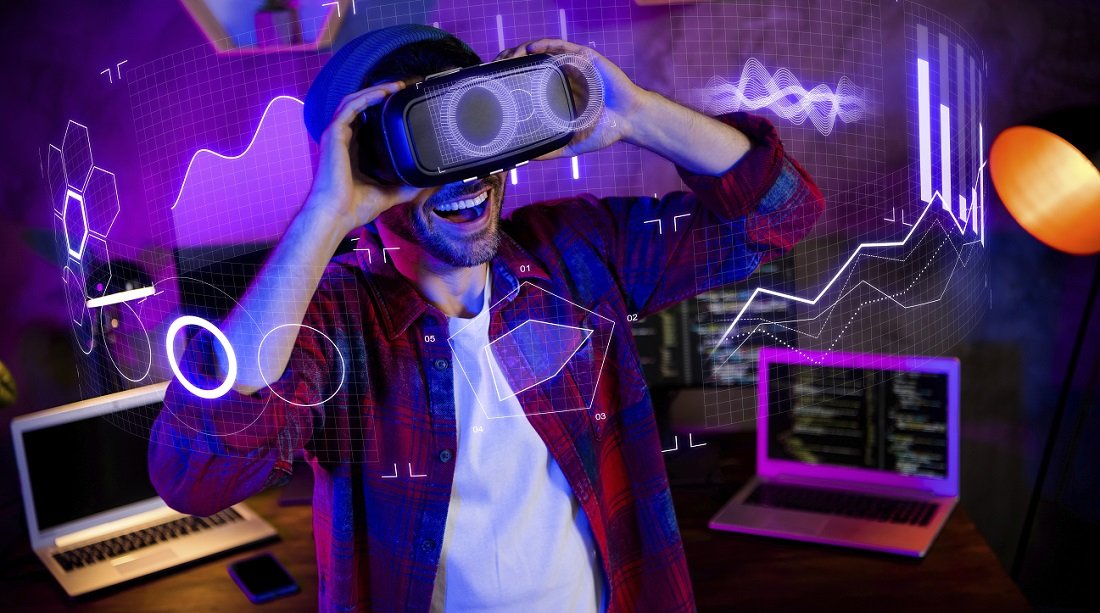Tech
AI Gaming Trends to Watch in 2025

Artificial Intelligence (AI) technology helps gaming developers deliver immersive experiences, personalised gameplay and increasingly realistic virtual worlds.
As AI becomes more sophisticated, its usage in the gaming industry will become even more prevalent. Here are four AI gaming trends to keep an eye on.
AI-Driven Online Casinos in the UAE
The United Arab Emirates (UAE) recently established a regulatory authority to establish a framework for legalised gambling within its borders.
They have handed Wynn Resorts the first commercial gaming licence for land-based operations, and online casinos are set to benefit from this significant development.
Many of the platforms listed on comparison website https://www.casino.com/ae/en/ currently offer Arab players a basic online casino gaming experience.
However, if the UAE starts issuing licences to online operators, there would be more incentive for them to significantly broaden the scope of their games.
They would turn to AI to curate unique, immersive and safe gaming experiences that respect the sensitivity of locals while adhering to stringent regulatory guidelines.
AI will help developers make games which are more personalised by adjusting the game dynamics, difficulty and incentives while keeping players engaged.
Security is another area where AI is crucial. The UAE will demand the highest standards, and AI tools can be used to detect problems and monitor responsible gambling in real time.
Virtual Reality and Metaverse Gaming in Asia
Japan, China and South Korea are pushing the boundaries in virtual reality (VR) and metaverse gaming and their endeavours are being powered by AI platforms.
They are investing in VR gaming as Asia looks to lead the way towards seamlessly merging virtual and real-life environments, and AI will be used to improve these experiments.
AI is helping to create a never-before-before immersive experience on VR gaming platforms. AI-driven behaviour modelling and natural language processing make non-player characters (NPCs) more dynamic and responsive.
The technology creates more robust characters. They can remember past encounters and respond with proper context while imitating real interpersonal relationships. It helps to make the gaming storylines richer and meatier, adding that sense of realism to metaverse spaces.
AI is already being leveraged to improve player customisation in the virtual realm, and this trend will likely continue next year. It can create better avatars and adapt to user preferences or interaction while adding depth to gameplay and improving player engagement.
VR hardware is more optimal with AI. It will be used to reduce lags and improve resolution to enhance the immersive experience, and Asia is expected to play a massive role in harnessing this AI power.
AI and Cloud Gaming Synergy in the US
AI is forming an exciting partnership with cloud gaming in the United States (US). Crowd gaming services are more accessible, and players can stream games without powerful local hardware.
The technology is crucial in optimising these services to match user demand, maintain seamless streaming and personalise the gaming experience.
One crucial use of AI in cloud gaming is dynamic scaling, which adjusts graphics and computational quality in real time to kill off lags and prevent any interference to gameplay, even in low-bandwidth situations.
Games are more demanding graphically, and users want to stream lag-free on any device. AI algorithms read the internet speed and the device’s ability before adjusting the resolution and processing requirements.
Positive strides in personalisation have also been made with AI. US-based cloud gaming outfits such as NVIDIA GeForce Now and Xbox Cloud Gaming use AI to track what players prefer. They can recommend games and adjust the gameplay based on skill level and history.
AI-enhanced accessibility options like real-time translations and voice commands make the games more inclusive, allowing America’s gaming market to cater to the rest of the world.
AI and eSports Performance Analytics in the UK
AI is rapidly transforming eSports in the United Kingdom by providing players and teams with advanced performance analytics.
Professional eSports teams rely on data-driven insights to finetune their strategy, improve player performance and gain a competitive edge.
AI-powered tools sift through large amounts of data to give teams actionable insights that can help improve performance. They can monitor every player’s movement, reaction times and decision-making patterns in the game.
Machine learning is used to scour through player data to reveal strengths or weaknesses and possible ways to improve. The technology can also mimic different in-game scenarios for practice, helping players prepare for any adversary.
AI will increasingly be used to improve team synergy by offering data on the team’s dynamics, gauging whether players compose themselves in high-pressure situations and point out areas for improvement.
UK eSports organisations will leverage AI for player performance and fan engagement as stakeholders push to give professional gaming more mainstream credibility.
For More Information Visit Coopermagazine
-

 Celebrity1 year ago
Celebrity1 year agoWho Is Jennifer Rauchet?: All You Need To Know About Pete Hegseth’s Wife
-

 Celebrity1 year ago
Celebrity1 year agoWho Is Mindy Jennings?: All You Need To Know About Ken Jennings Wife
-

 Celebrity1 year ago
Celebrity1 year agoWho Is Enrica Cenzatti?: The Untold Story of Andrea Bocelli’s Ex-Wife
-

 Celebrity1 year ago
Celebrity1 year agoWho Is Klarissa Munz: The Untold Story of Freddie Highmore’s Wife
















